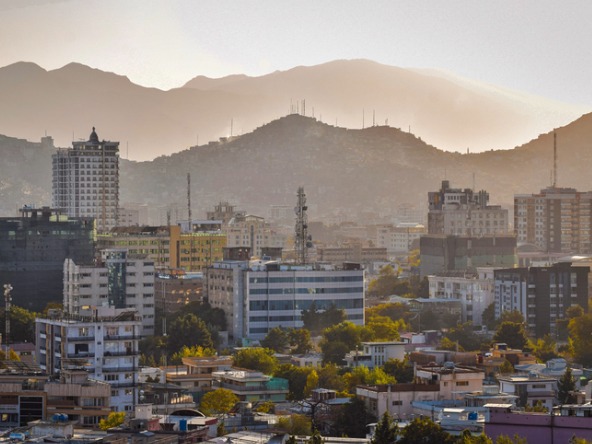After the fall: Research in Afghanistan

After 20 years of war, a new era began in Afghanistan in August 2021, with the Taliban returning to power. This has led to significant changes in Afghan society, with personal freedoms curtailed, especially among women.
The media industry in Afghanistan was among the numerous areas of life to change rapidly. BBC Media Action, the BBC’s media charity, sought to understand those changes and how media consumption in Afghanistan had changed.
The Taliban has restricted media organisations, detained journalists and imposed harsher restrictions on female reporters. According to Reporters Without Borders, 40% of media outlets have closed, and 60% of Afghanistan’s journalists have either left the country or their jobs.
“Since the Taliban took over, we have constantly been doing research,” says Mahdi Zaki, country research manager at BBC Media Action and co-author of A survey of media consumption in Afghanistan, published in December 2023. “There were media personnel who had left the country; lots of media organisations had just suddenly stopped operating and slowly restarted and resumed their activities. We wanted to understand how many media were still active in Afghanistan.
“The Taliban has restricted the broadcast of entertainment content, for example. We wanted to understand what has changed – what media and content is still accessible to Afghans, and what has been the impact of the Taliban takeover on Afghans’ media consumption.”
The research involved 2,620 quantitative interviews across 34 provinces, as well as 15 focus groups, five key informant interviews (KII) with media experts, and 20 KIIs with Afghan media content makers and broadcasters inside and outside the country.
Carrying out research in Afghanistan post-Taliban has significant challenges. BBC Media Action was helped by its existing presence in the country, with local researchers who are trusted by community members. Around one in three Afghans has access to the internet, with fewer than half of mobile phone users owning a smartphone, making the challenge of contacting people more difficult. In the end, 58% of interviews were carried out over the phone, with the rest done in person.
“Our colleagues have tried to build an environment where people could freely speak, but you might see in some cases where the percentage of people who ‘don’t know’ or don’t want to answer was a bit higher,” explains Zaki. “Considering the situation in the country, people wanted to be censored or, in some cases, people wanted to share, or felt happy they were being listened to or that their views were being collected.”
In many cases, researchers needed to negotiate with a male guardian, such as a husband or brother, and telephone interviews were also used to gain access. “To have 45% of participants being female in Afghanistan was, considering the current situation, an achievement,” Zaki adds.
The research found changes in media consumption patterns. “Now, you see more women watching TV or using the internet or social media, because, in the past, more women worked, and now they stay at home and they don’t have a lot to do,” Zaki says.
“If you compare the hours and timings of media consumption for men and women, you will see a rise in consumption for women in daylight hours, while more men consume media between 7pm and 10pm.”
Among the biggest changes have been restrictions on the ability of local media to produce entertaining content, resulting in a loss of advertising revenue and greater popularity of overseas content. Some content that is less sensitive is still being produced, however.
Afghan media outlets have continued producing and broadcasting content that is less sensitive in areas such as education, health and agriculture, to provide information to viewers.
Some media outlets are also turning to social media as a way to bypass scrutiny of content and reach a younger audience. Increased use of social media, however, is also leading to increased disinformation. The research estimated that around half of Afghans have come across misleading or false information.
What does the future hold? “Media organisations are trying to find some creative ways to continue their operations,” says Zaki. “If the overall approach or politics of the Taliban remain the same, there could be more limitations [introduced] on the media.”
This article was first published in the July 2024 issue of Impact
- The report found that the majority of respondents said there were not any/enough movies ( 55%), music ( 55%) or fashion programming ( 52%) available on media in Afghanistan.
- Around half of respondents felt there was the ‘right amount’ of religious and news content, while a third ( 33%) said there was ‘too much’ coverage of religion and a quarter ‘too much’ international ( 25%) or Afghanistan-related news ( 25%).
(BBC Media Action, December 2023 )

We hope you enjoyed this article.
Research Live is published by MRS.
The Market Research Society (MRS) exists to promote and protect the research sector, showcasing how research delivers impact for businesses and government.
Members of MRS enjoy many benefits including tailoured policy guidance, discounts on training and conferences, and access to member-only content.
For example, there's an archive of winning case studies from over a decade of MRS Awards.
Find out more about the benefits of joining MRS here.













0 Comments